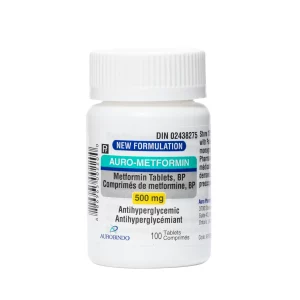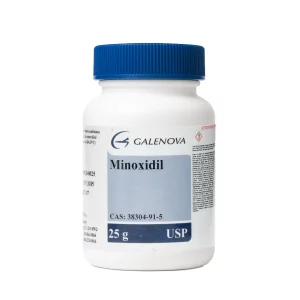Your cart is empty.
Your cart is empty.
Viagra, known scientifically as sildenafil, is a well-known medication designed to support male performance when it counts. It works by gently helping your body’s natural processes to improve blood flow, making it easier to achieve and maintain a firm erection.
This article will explain the Viagra mechanism of action step by step, showing you exactly how this medication works inside your body, just like turning on a faucet to let water flow more freely. Understanding its mechanism is the first step if you’re wondering how to take Viagra or exploring options like tadalafil vs. Viagra. You can also learn where to buy Viagra if it’s suitable for your needs.
Viagra is a widely used oral medication specifically formulated to support male performance. Its active ingredient is called sildenafil citrate. This medication is a prescription drug, meaning you need a doctor’s approval to obtain it. Interestingly, Viagra was developed initially for heart-related conditions, but its effects on blood flow led to its current primary use.
At its core, Viagra (sildenafil citrate) functions by enhancing blood flow throughout the body, particularly in the genital region. It accomplishes this by promoting the relaxation of certain blood vessels. To fully grasp this mechanism, we must introduce a key component: phosphodiesterase type 5, commonly known as PDE5.
Imagine PDE5 as an enzyme that acts like a brake on the body’s natural ability to increase blood flow. This enzyme usually breaks down a substance known as cyclic guanosine monophosphate (cGMP), which plays a crucial role in the physiological process of erection.
Viagra’s primary function is to release this brake. By selectively inhibiting PDE5, Viagra increases the levels of cGMP, which helps to relax the smooth muscle in the blood vessels. This relaxation improves blood circulation, ensuring that more blood can flow into the erectile tissues, facilitating erections. This action makes Viagra particularly effective for men experiencing erectile dysfunction, allowing them to achieve and maintain an erection sufficient for sexual intercourse.
Let’s take a simplified look at how Viagra takes effect inside the body, from the initial spark to the full effect.
It’s important to remember that Viagra doesn’t work on its own. Your body needs to be sexually stimulated first. When this stimulation occurs, a chemical called nitric oxide is released. Nitric oxide acts as a signal, telling the smooth muscles around blood vessels to relax.
Once nitric oxide is released, another important molecule called cGMP is produced. You can think of cGMP as the primary messenger that tells blood vessels to widen. When cGMP levels are high, blood vessels relax and expand, allowing more blood flow. This is essential for achieving an erection.
Here’s where Viagra, or sildenafil, comes into play. There’s an enzyme in your body called PDE5. Its natural job is to break down cGMP. When PDE5 breaks down cGMP too quickly, the blood vessels constrict again, and the erection may not be firm enough or last long enough. Sildenafil blocks this PDE5 enzyme. By blocking PDE5, Viagra helps maintain high levels of cGMP. This prolonged presence of cGMP keeps the blood vessels relaxed and widened, supporting a firm and lasting erection.

After you take it, Viagra usually starts to work within 30 to 60 minutes, which is its average onset time. Once active, its effects typically last for up to 4 hours. However, the exact duration can vary. Factors like your metabolism, which is how quickly your body processes things, and even whether you’ve eaten recently, can influence how long Viagra remains effective. For instance, taking it with a heavy meal slightly delays its onset.
It’s crucial to understand what Viagra does and doesn’t do. Firstly, Viagra does not cause sexual stimulation on its own. Sexual arousal is still necessary for the medication to work. It’s not a magic pill that creates an erection from nothing; it simply enhances the body’s natural response to stimulation. Secondly, Viagra doesn’t increase hormone levels, such as testosterone. It also doesn’t boost your libido or sexual desire. Its primary role is to support blood flow during natural sexual responses, making it easier for blood to flow into the penis when you are aroused.
When you take a Viagra pill, it’s absorbed into your bloodstream through your digestive system. Once absorbed, the active ingredient, sildenafil, travels throughout your body. Your liver plays a key role in processing sildenafil, breaking it into other compounds. These compounds are then eliminated from your body, primarily through your kidneys. The entire process, from absorption to full clearance, usually happens within 24 hours. This means the medication is no longer active in your system after about a day.

Viagra is part of a group of medications known as PDE5 inhibitors. Another well-known medication in this group is tadalafil, which is sold under brand names like Cialis. While both Viagra and tadalafil work by blocking the PDE5 enzyme, their duration of action differs. Viagra typically works for about 4 hours, making it suitable for spontaneous use. Tadalafil, on the other hand, can remain active for up to 36 hours. This longer duration means that tadalafil might be preferred by those who desire more flexibility or spontaneity in their sexual activity. The choice between these medications often comes down to individual preference and lifestyle. Each has unique benefits, and a healthcare professional can help you decide which is best for your needs.
Viagra works by blocking the PDE5 enzyme. This allows a natural chemical called cGMP to stay in the body longer, which helps blood vessels relax and open, improving blood flow to support an erection.
No, Viagra does not work instantly. It usually takes 30 to 60 minutes for the medication to become active. Sexual stimulation is also needed for it to work effectively.
Yes, you can take Viagra with food. However, consuming a heavy or fatty meal right before taking the pill may slightly delay its absorption into your bloodstream. It might take a bit longer for you to feel its effects.
No, the response time and overall effectiveness of Viagra can vary from person to person. Factors such as individual health conditions, age, and metabolism can influence how well and quickly the medication works for you.
The main difference between Viagra (sildenafil) and tadalafil is how long their effects last. Viagra typically works for about 4 hours. Tadalafil, on the other hand, has a much longer duration of action, with effects lasting up to 36 hours. Both work by blocking the PDE5 enzyme.


Acarbose blocks carbohydrate breakdown in the small intestine, preventing rapid glucose absorption spikes.

Dasatinib eliminates senescent cells through selective apoptosis, clearing age-damaged tissues from the body.

Metformin inhibits hepatic glucose production while enhancing insulin sensitivity, offering cost-effective Type 2 diabetes management.

Minoxidil dilates scalp blood vessels, increasing nutrient delivery to hair follicles while extending the anagen growth phase duration.
Unlock savings on bundles and elevate your online experience today!